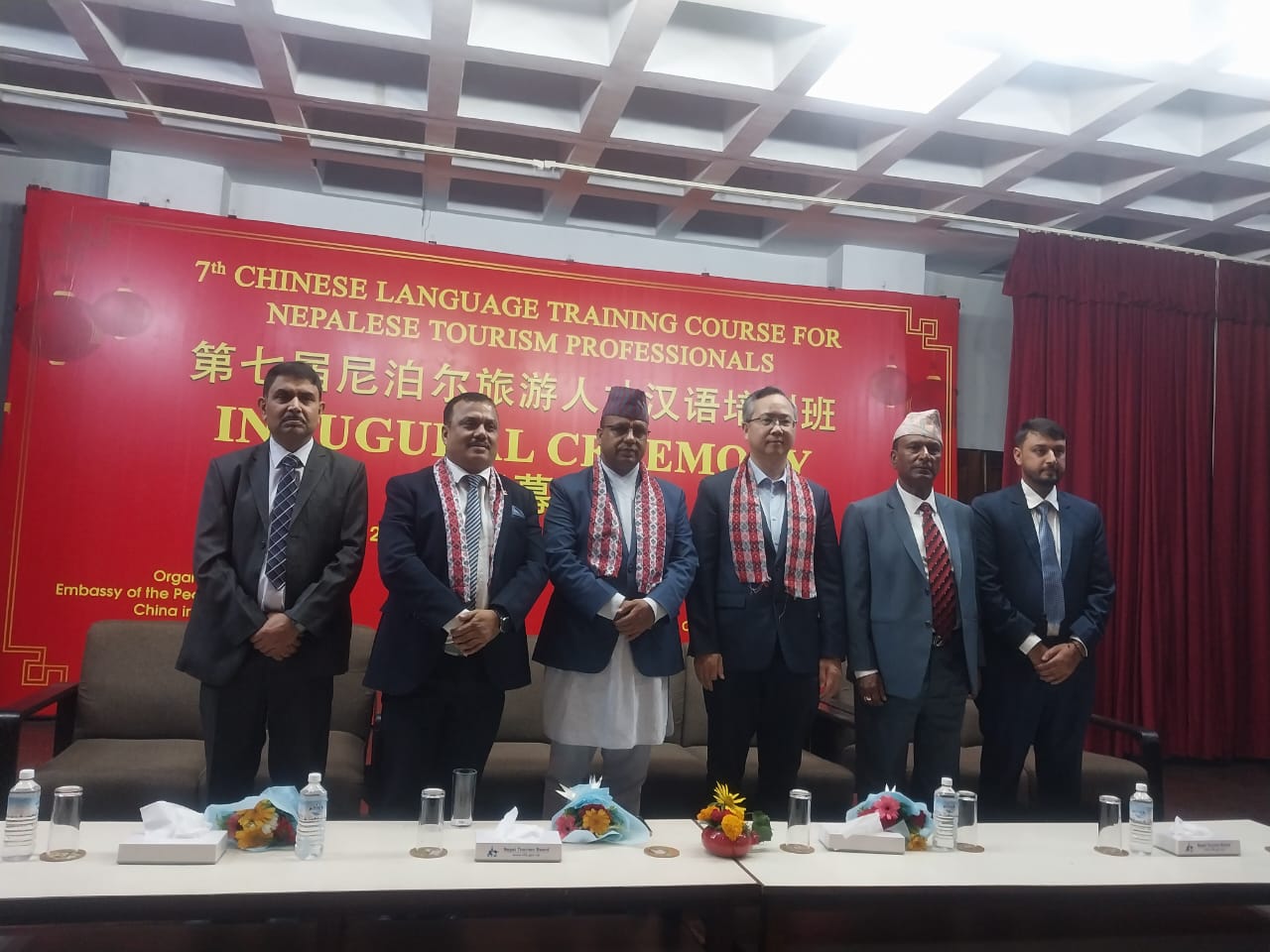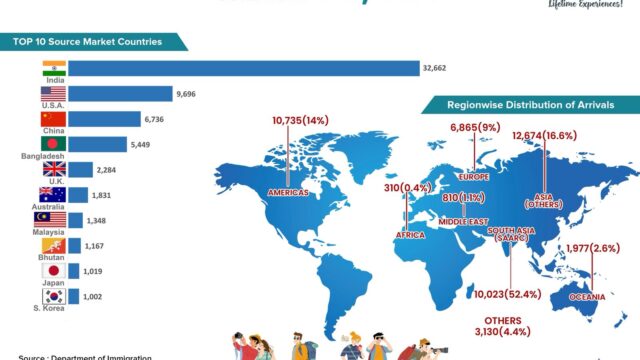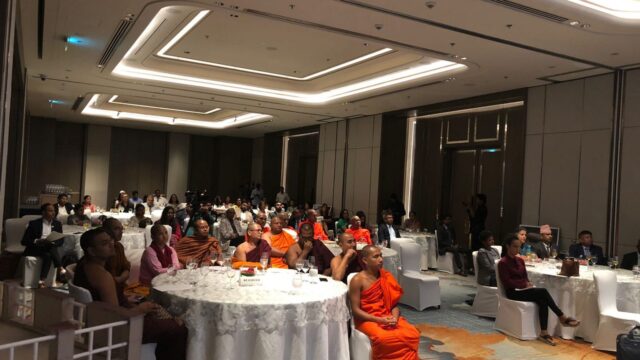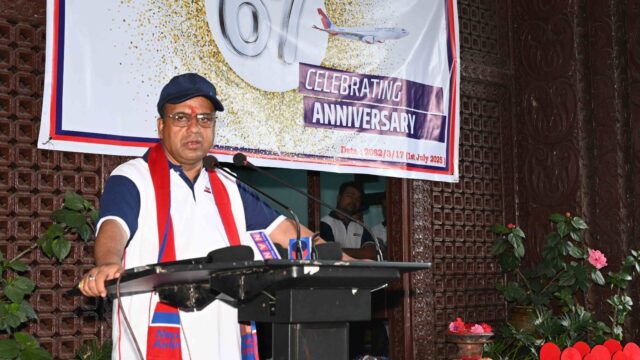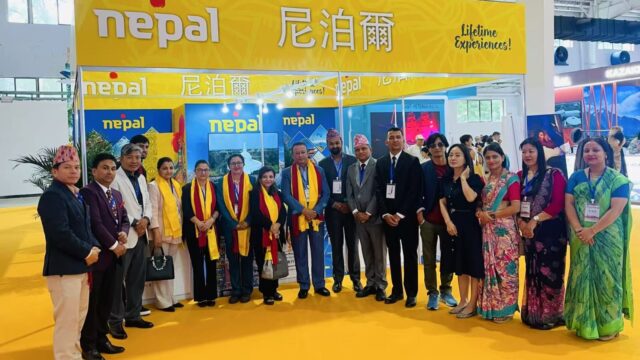A new phase of the Chinese language training program for Nepalese tourism professionals has officially commenced in Kathmandu. The program, jointly organized by the Nepal Tourism Board (NTB) and the Embassy of the People’s Republic of China in Nepal, was formally inaugurated by the Minister for Culture, Tourism, and Civil Aviation, Mr. Badri Prasad Pandey, during a ceremony held at the NTB auditorium on Friday.
Chinese Language Training Program Begins
The newly launched seventh batch of the training program aims to enhance the linguistic and professional capabilities of individuals working in Nepal’s tourism sector, specifically those interacting with the growing number of Chinese tourists.
Addressing the inaugural session, Minister Pandey emphasized the importance of language in strengthening international relations and promoting tourism. “The knowledge of the Chinese language will serve as a bridge in Nepal-China relations and will significantly contribute to the promotion of tourism,” he said.
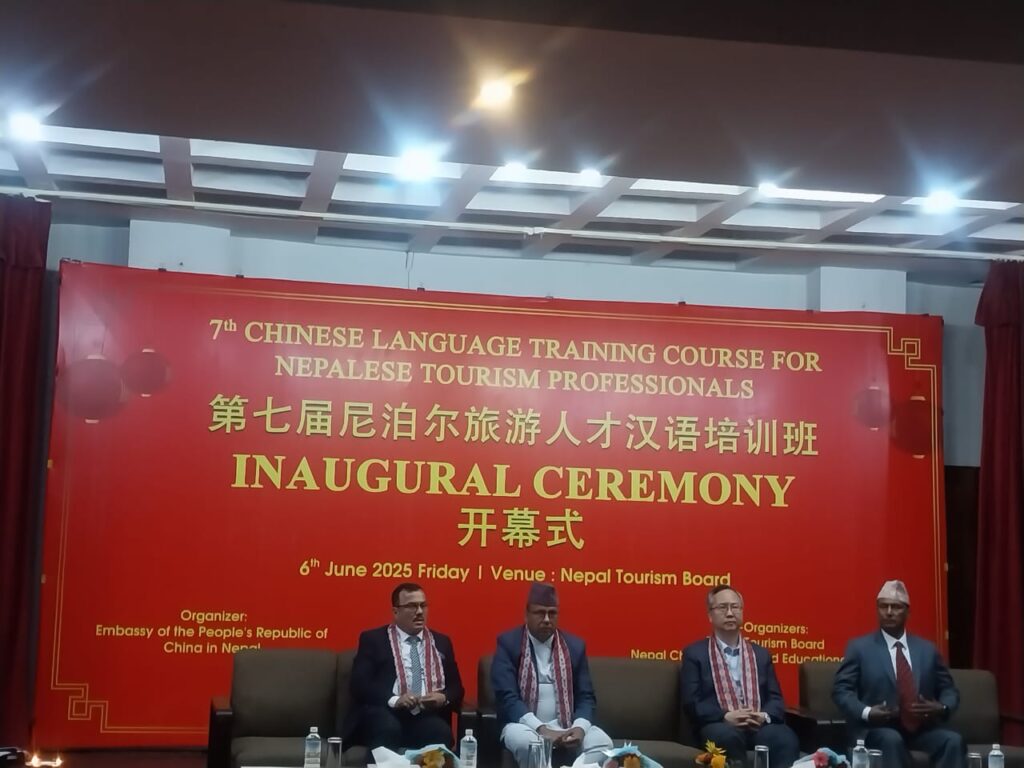
He further noted that acquiring language skills is equivalent to accumulating assets. “The more languages one masters, the more qualified and competent they become,” Pandey added. He also stressed that language facilitates better human connection and plays a crucial role in understanding civilizations, histories, and philosophies.
Highlighting the broader significance of language training, Minister Pandey stated, “Becoming proficient in the Chinese language not only develops skilled manpower but also positions individuals as cultural ambassadors who can help in tourism development and self-employment.”
Minister Pandey also used the opportunity to invite the Chinese people to explore Nepal. “Since China has declared a ‘Nepal Tourism Year,’ I sincerely urge our Chinese friends to visit and experience the natural beauty of Nepal. One visit is never enough, Nepal leaves a lasting impression,” he remarked.
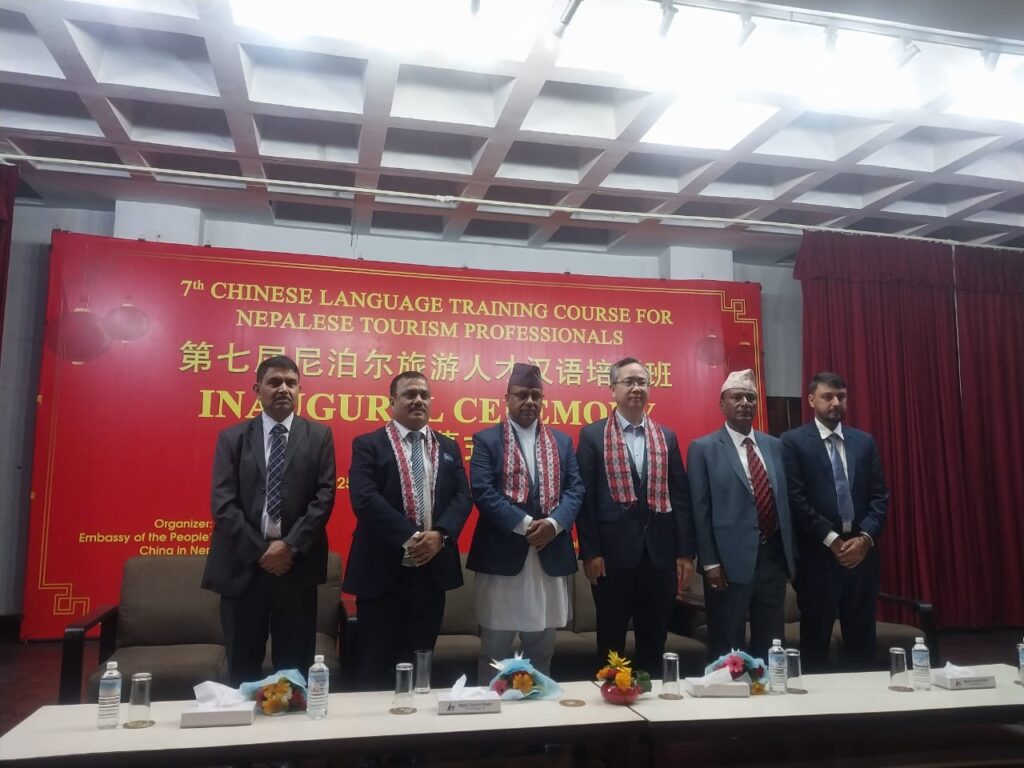
Addressing climate change, he expressed concern about the decreasing snow cover in Nepal’s Himalayas, calling for continuous efforts in mitigation and adaptation strategies.
Speaking at the same event, Chinese Ambassador to Nepal, H.E. Chen Song, said the language program has been launched to commemorate the 75th anniversary of diplomatic relations between Nepal and China. “This is the third time I’ve had the honor of inaugurating such a language training session since arriving in Nepal,” he said. “Chinese tourists visiting Nepal expect to communicate in their native language, so this training will enhance the quality of services they receive.”
Ambassador Song highlighted China’s role in reshaping global tourism and emphasized that modern Chinese travelers are not just interested in sightseeing or shopping, they also seek cultural immersion and meaningful communication. “The knowledge of the Chinese language allows Nepalese service providers to convey the country’s rich history and offer high-quality, long-term tourism experiences,” he explained.
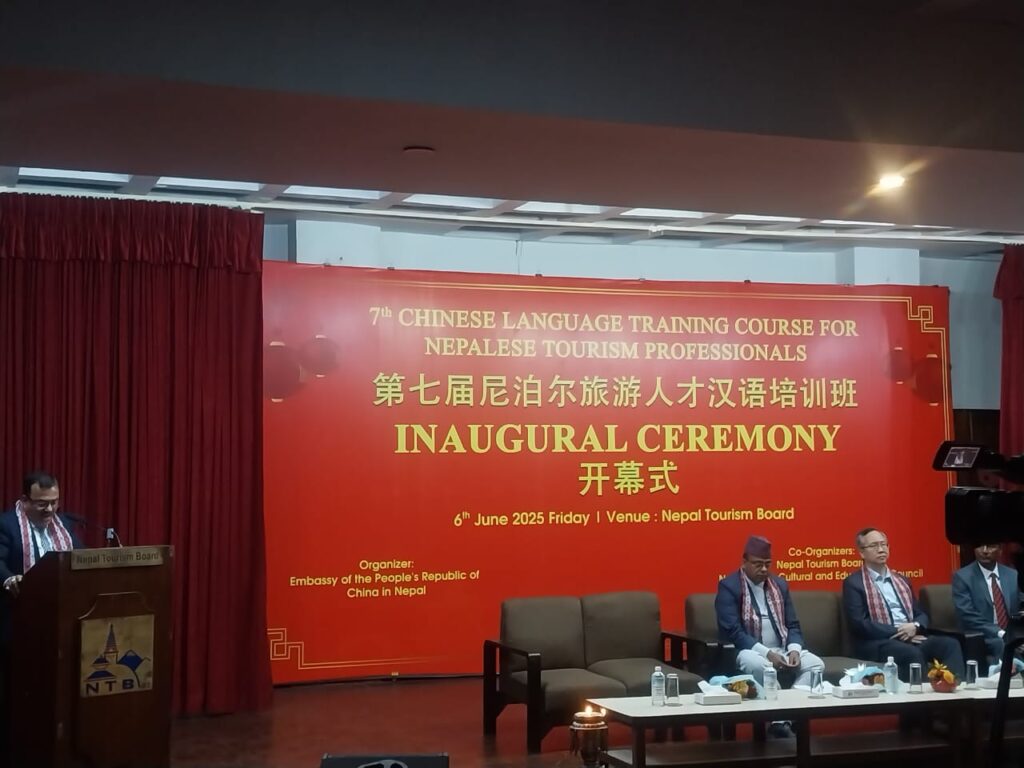
He also underscored that learning Chinese presents a valuable opportunity to tap into the world’s largest tourism market. NTB’s Acting CEO, Mr. Hikmat Singh Ayer, called the initiative a crucial step forward. “This is not merely the beginning of a language course but a strong reinforcement of Nepal-China relations,” he said.
Mr. Ayer expressed confidence that the training will significantly enhance the skills and capacities of Nepal’s tourism professionals. “Language is a powerful tool, it breaks down barriers, builds trust, and fosters deep connections,” he said. “Investment in this training is also an investment in quality service, people-to-people ties, and long-term cooperation.”
He added that tourism professionals equipped with Chinese language skills will become stronger competitors in the international tourism market. To date, six batches of this training program have been conducted in Nepal, producing 240 trained tourism professionals. The initiative began in 2016 following an agreement made during former Prime Minister KP Sharma Oli’s official visit to China, aimed at strengthening bilateral ties and enhancing tourism cooperation.
